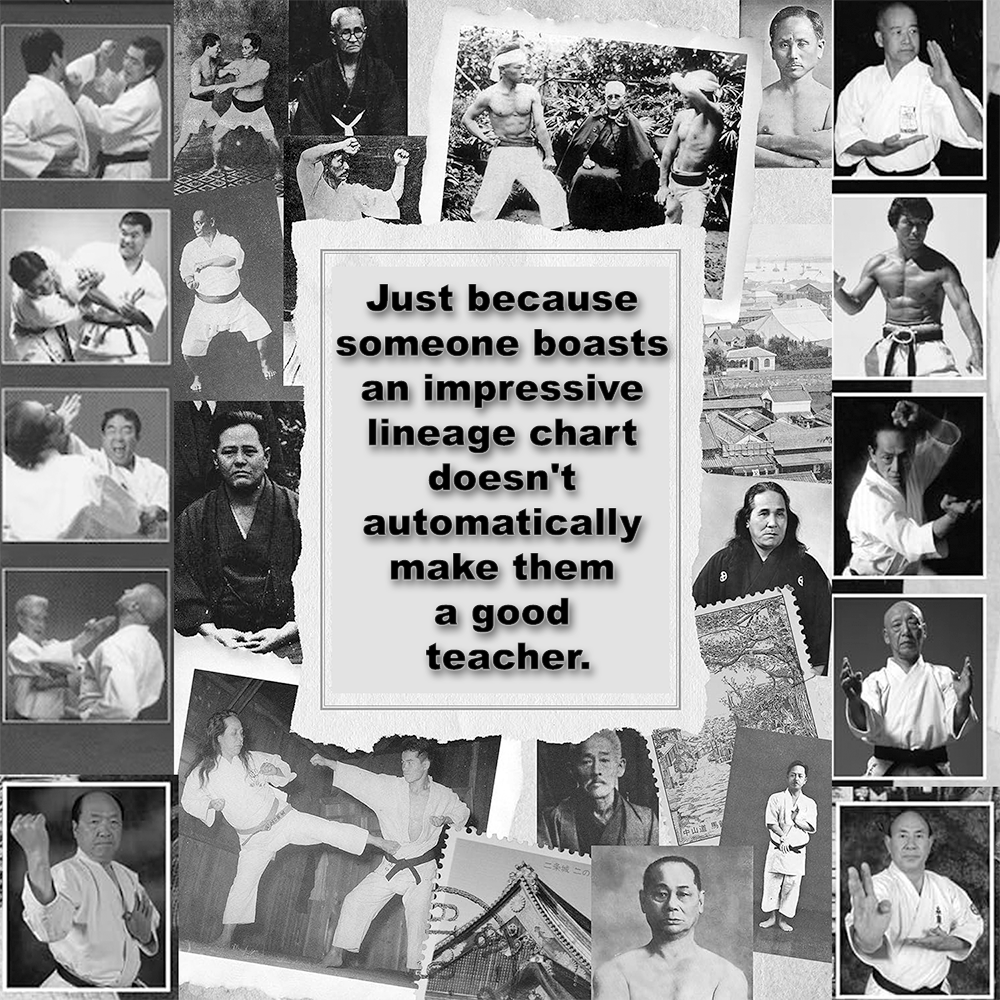
(2 minute and 15 second read)
Joining a martial arts school for the first time is an exciting and empowering endeavor for many individuals. The prospect of learning self-defense, perhaps wanting to compete, or just physical fitness, often attracts people to these schools.
.
However, a significant challenge arises when newcomers lack the knowledge to discern the qualities of a competent instructor.
.
Unlike other educational settings, martial arts lack standardized credentials, making it challenging for beginners to assess the instructor’s expertise. Most people just turn up at a school local to them.
.
Novice students may be attracted by the promise of the “ultimate”, “the strongest”, or perhaps a martial art lineage dating back decades, only to later discover that the qualities offered definitely do not match the hype.
.
While tradition holds an important place in the martial arts, many instructors cite their styles lineage, hailing that this will make their dojo instructors adept or skilled practitioners.
.
As the sole indicator of an instructor’s quality this can be very misleading. Just because someone boasts an impressive lineage chart doesn’t automatically make them a good teacher, or guarantee their skills, or in fact their character.
.
Focusing solely on lineage ignores the crucial factors of teaching ability and methodology. I’ve personally encountered instructors with interesting lineages who possessed very subpar skills, teaching methods, credibility and trustworthiness. Their historical connections weren’t enough to make up for their obvious flaws and in some cases, their downright dishonesty.
.
If you are trying to pass on knowledge to someone, then teaching skills and a deep understanding of the art you practice are of course paramount, way before any kind of historical legacy.
.
So, what if an instructor lacks a clear lineage? Does that automatically make them inferior?
.
Absolutely not! Their skill, effectiveness, teaching methods and trustworthiness, hold far greater weight in evaluating their expertise. You should judge an instructor based on their demonstrated capabilities, not on historical connections.
.
Of course, lineage isn’t entirely meaningless. For some, it represents traditional values, a sense of belonging, and connection to history that are core aspects of their martial arts journey.
.
Ultimately, what is important for any student is to evaluate the instructor and school directly. Observe their teaching methods, assess their skills, and ensure their values align with your own and what you need from training. Don’t be swayed by claims of lineage, or any other outlandish claim.
.
The martial art extends beyond principles and physical techniques. It encompasses mental fortitude, self-discipline, spiritual growth, and much more. While traditions can contribute to these aspects, they are not the sole source.
.
For some, lineage is paramount, offering a connection to history, tradition, and credibility. For others, the focus is on the quality of instruction and individual growth, with lineage playing a less significant role.
.
And of course in some instances there are different interpretations of historical events, or variations in teaching methodology, which can create rivalries, falsehoods, and rigid adherence to a lineage which hinders progress.
.
Ultimately, the importance of a lineage is subjective and depends on individual values and priorities. And if lineage is claimed, it’s always presumed as some sort of endorsement, and that may not be the case.
.
How important is a martial arts lineage to you?
